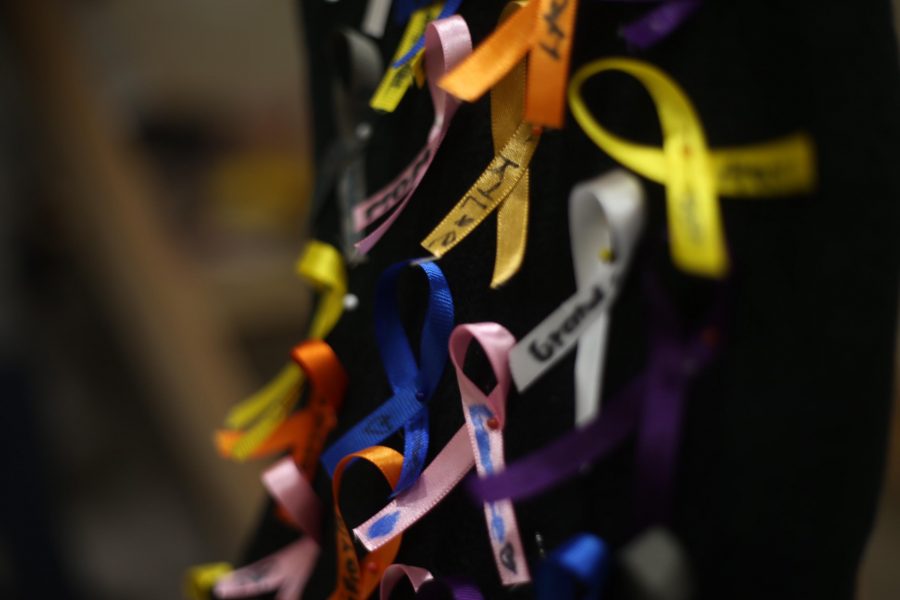Sitting front and center on the main floor of the IMU is a ribbon display set up to honor patients and the variety of cancers they have battled.
Piles of different colored ribbons sit in a line next to the display for families to come write their names on and hang up in honor of people close to their hearts.
A ribbon was hung up in honor of Melissa Johnson’s 6-year-old daughter, Bethany.
“This is our sixth year here [at the Big Event], and every year is overwhelming and exciting,” Johnson said. “It’s awesome to see all the support that is given to families like ours.”
The orange ribbon represents kidney, uterine, and appendix cancer as well as leukemia.
“Now that Bethany is getting old enough to better understand what cancer is, we can start explain to her that there are all these different types of cancers, like these colors are representing for the display,” Johnson said.
Some of the other ribbon colors available for display included gold for childhood cancer, gray for brain cancer, black for melanoma, and yellow for sarcoma and bone cancer.
Dance Marathon mother Jill Bradley hung up a few different ribbons to honor members of her family.
“I have two uncles who passed away from different kinds of cancer that I am honoring with ribbons, and I am here dancing for my daughter Norah,” Bradley said.
Bradley hung up a white ribbon, which represents cervical, lung, head, and neck cancer and a blue ribbon to represent colon, ovarian, and prostate cancer.
“It’s great to see all the support of the people here tonight and then to see [these ribbons] as a way to honor people that have both passed away [or are still with us],” Bradley said.
Another family hung up an orange ribbon to honor their win against leukemia.
“[My son] Caleb is four years’ cancer free now. He had leukemia when he was 2,” said mother Kimberly Lee. “The orange ribbon we are hanging up represents the leukemia he fought and beat.”
Lee was moved by the display and what it stood for.
“[The display] makes me realize just how common cancer has become; a lot more common than it used to be,” Lee said. “It just makes you stop and think about how your bad days are nothing compared to the bad days these guys can have.”



